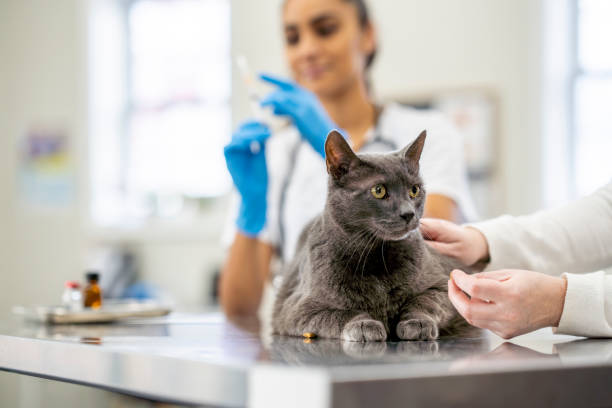Unveiling the Mystery: What Are Pet Vaccinations? In the world of pet ownership, few topics garner as much attention and provoke as many questions as pet vaccinations. These preventative measures are vital to the health and wellbeing of our furry friends, yet many pet owners find themselves grappling with understanding what pet vaccinations are, which ones are necessary, and how they work to protect their pets. This comprehensive exploration aims to demystify pet vaccinations, offering clarity and insight into their importance, types, schedules, and much more.
Understanding the Importance of Pet Vaccinations
Pet vaccinations serve as a critical defense mechanism for pets, acting as a training ground for their immune systems to fight off potential diseases. By introducing antigens that mimic disease-causing organisms without actually causing illness, vaccines stimulate the pet’s immune system to prepare defenses that will be called upon if the pet is exposed to the actual disease. This proactive approach significantly minimizes the risk of severe illness in pets, and in many cases, prevents the diseases entirely. As a result, vaccinations have played a key role in controlling and reducing the impact of numerous fatal diseases among pet populations. The protection they offer not only ensures the health and longevity of individual pets but also contributes to the broader goal of public health by curtailing the spread of transmissible diseases.
The Core and Non-Core Vaccines Every Pet Owner Should Know About
In the realm of pet healthcare, vaccines are categorized into core and non-core groups, essential for every pet owner to understand. Core vaccines are deemed necessary for all pets as they prevent diseases that are highly contagious, potentially fatal, or pose a significant risk to humans. For dogs, this group typically includes protections against rabies, canine distemper, parvovirus, and hepatitis. Cats, on the other hand, are generally vaccinated against rabies, feline distemper (panleukopenia), calicivirus, and herpesvirus type I. Non-core vaccines are given based on an individual pet’s exposure risk, which can be influenced by their environment and lifestyle. Dogs may receive vaccines for conditions like Bordetella, Lyme disease, and leptospirosis, while cats might be vaccinated against feline leukemia virus, Chlamydophila felis, and Bordetella. It’s crucial for pet owners to consult with their veterinarian to determine which non-core vaccines are appropriate for their pets’ specific needs.
Deciphering Your Pet’s Vaccination Schedule
Navigating your pet’s vaccination timetable is pivotal for ensuring their ongoing health. Initially, puppies and kittens embark on their vaccination journey between 6 to 8 weeks of age, receiving booster shots in intervals of 3 to 4 weeks up until they reach around 16 weeks old, establishing a robust defense against numerous diseases. As they transition into adulthood, the schedule adjusts, necessitating fewer boosters, the frequency of which is determined by the type of vaccine, the pet’s lifestyle, health status, and local regulations. Consulting with a veterinarian is key, as they can tailor a vaccination plan that aligns with your pet’s unique health profile, factoring in their specific needs and any potential risks they may face due to their environment or activities. This personalized approach ensures that your pet remains protected at every stage of life, without unnecessary over-vaccination.
Addressing Common Concerns About Pet Vaccinations
While the value of pet vaccinations is undeniable, apprehensions remain for some pet owners. Mild side effects, such as temporary discomfort or mild fever, are the most common and are generally outweighed by the benefits of vaccination. Concerns about severe allergic reactions, though understandable, are infrequent, and veterinarians are equipped to manage them effectively if they arise. The possibility of over-vaccination has prompted the introduction of titer tests, which assess a pet’s immunity to certain diseases, helping to inform decisions about the necessity of booster shots. Open communication with your veterinarian is crucial, allowing you to voice your concerns and receive advice tailored to the latest health guidelines and your pet’s specific health status. This dialogue ensures that your pet receives optimal care, balancing protection against potential risks.
Navigating the Cost of Pet Vaccinations
The financial aspect of pet vaccinations varies significantly based on several factors, including the geographical location, the specific vaccines required, and the veterinary practice administering them. While some pet owners might perceive the initial expense of vaccinations as high, it’s important to weigh this against the potential costs of treating diseases that vaccinations can prevent. Diseases, if contracted, can lead to hefty medical bills and emotional distress. To help mitigate these costs, pet owners are encouraged to explore community resources, such as low-cost vaccination clinics often provided by animal shelters or public health departments. Additionally, it’s worthwhile to check if pet insurance plans cover vaccinations, as this can further alleviate the financial burden. Being proactive in seeking out these resources can make a significant difference in making vaccinations more affordable and accessible, ensuring pets receive the necessary preventative care without straining the owner’s budget.
Conclusion
The role of vaccinations in ensuring the health and longevity of pets is undeniable. By equipping pet owners with the knowledge of both core and non-core vaccines, guiding them through personalized vaccination schedules, and addressing any concerns, we pave the way for a healthier pet population. It’s imperative to maintain open communication with your veterinarian to tailor a vaccination plan that meets your pet’s specific health requirements. Additionally, exploring community resources and insurance options can alleviate the financial impact of vaccinations, making preventive care accessible to more pet owners. Embracing vaccinations as a crucial part of pet healthcare empowers owners to protect their companions against preventable diseases, contributing to the overall wellbeing of our beloved pets and the communities they live in.
